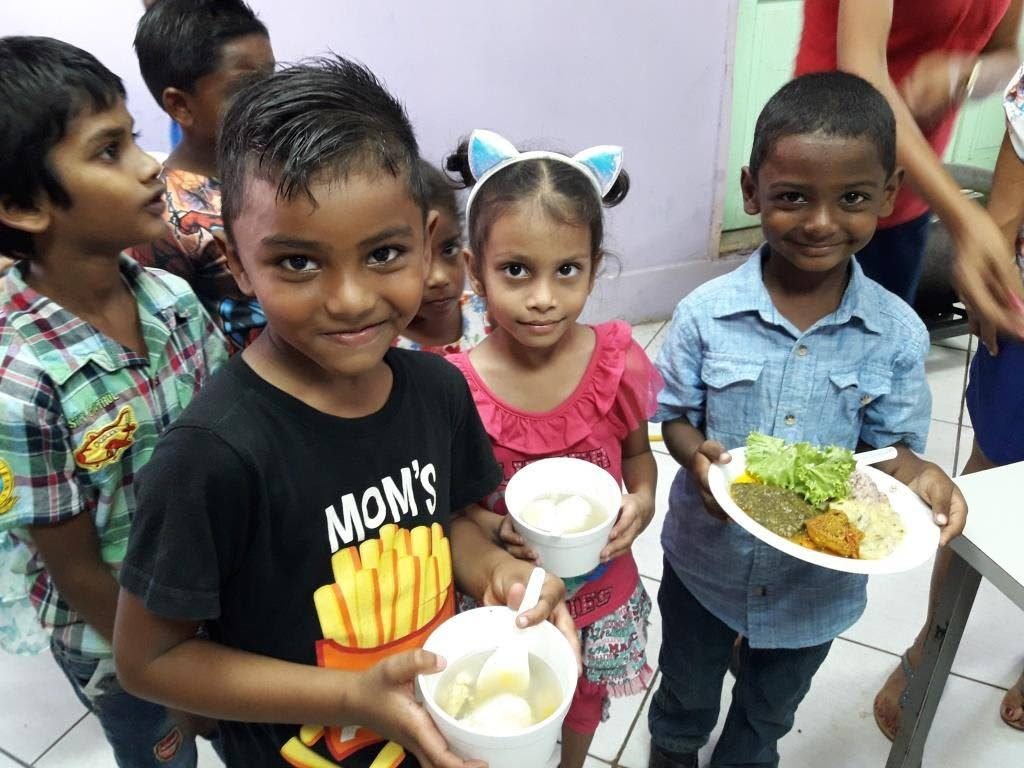No $50 ham in food security planning

OMARDATH MAHARAJ
REFLECTING ON a recent “run for food,” there is perhaps no current incentive for policymakers to act with the required urgency and alarm on issues relating to food and nutrition security planning in this country.
Food is available for the population, though import dependent, but with rising prices and cost of living, and loss of seed security, insecurity continues to loom. This is no reason to stop our work in the trenches, educating our taste buds, and promoting farmer motivation. It simply means we are people ahead of our time.
This was the message to near 200 children and teachers at the Orange Valley Government Primary School as I partnered with the National 4-H Voluntary Leaders Council to celebrate our annual Eat Local Day.
“We have to educate our children’s taste buds,” Prime Minister Dr Keith Rowley suggested on a radio programme when he first got into office in 2015 – and a few times after that.
On the first occasion he professed his love for breadfruit and other foods grown locally. Sadly, with all the other issues confronting leadership of this country, the priority may have shifted to those less important, in our opinion.
Even while his Minister of Agriculture lashed out at Kamla Persad-Bissessar in the budget debate in October about “the disconnect that policymakers and leaders have had for more than six decades” from the agriculture sector, he admitted that he did not listen to the budget speeches. Unfortunately for him, he went on to say that the Opposition talks about planting breadfruit.
We hope to plant food for the national landscape
Nonetheless, in 2019, with the Prime Minister’s inspiration and research, the mentorship of farmers, participation of schools and children across the country, we will explore the potential and education which the breadfruit provides. The first phase of this project would facilitate a national planting exercise of 1,000 trees, which the project hopes to purchase from the Ministry of Agriculture, and an accompanying support programme with geo-tagging.
The literature is abundant on the breadfruit’s multi-functional role as a substantial food source with several uses including: gluten-free, insect repellent, latex, fabric, and animal feed. Even more important is its acknowledged use in food security planning and hunger prevention in a growing world. Statistics suggest that a single breadfruit tree can feed a family of four for over 50 years. Globally, more than 80 per cent of the near 925 million people afflicted by hunger live in an area suitable for the cultivation of breadfruit.
There is a regional awakening to the stark reality that confronts Caribbean people
Over the years we have discussed all of the interconnected issues relating to the north-south model of trade and development and its impact on diet, health, well-being, as well as the livelihoods of farmers, fishers, and local industry, especially food manufacturing.
This historic pattern, political facilitation, and capitalism have created a dependence which has left millions of people and Caricom countries, in a globalised world, on the periphery of issues which are seemingly beyond our control.
In addition to global prices, geopolitical and availability issues, the recent flooding events made clear the vulnerability and unsustainability of local food systems. In times of disaster, we depend on canned, processed, and packaged foods – the majority of which are imported.
We have to continue the struggle towards our food independence
Climate change and its deleterious impacts, as well as the recognition that agriculture strengthens the national economy, provides employment and a social safety net to vulnerable areas and segments of the population, as well as an environmental role, is growing on the Caribbean psyche. Perhaps recent trade issues and natural disasters have prompted Montserrat and Jamaica to dig deeper into their agriculture sector – investing in its food, productivity, and variety.
Where ITC data was available, TT imported seeds, fruits and spores for sowing (excluding leguminous vegetables and sweet corn) between 2011 and 2015 worth approximately US$7 million or $47 million. Farmers recently protested to the Ministry of Agriculture over its perceived inaction to assist with restoring a supply of good quality seeds for replanting post-flood, among other issues.
Farmers' numbers never change
While data on the remaining number of full-time farmers and fisherfolk may be unreliable, networking from Charlotteville to Icacos suggests they are available 24/7 to feed our country whether we call on them or not.
Having the opportunity, courtesy foreign governments, to move the conversation and experience to China (Development policy and planning in agriculture) and India (Financing of inclusive agriculture and rural development), in comparison and after another challenging year for agriculture, it is my view that we are potentially losing the ability to feed ourselves.
Amidst all of our efforts to sustainably and consistently educate the national taste bud to desire knowing where their food comes from, how it is produced, and to respect the circumstances of the men and women who work to feed us, the scenario changes from promoting demand for local food to requiring urgent investigations of national importance – the supply capacity of our local food systems to sustain 1.3 million people. Import cover should not immediately form part of our dialogue.
Official local statistics, with all the limitations, tell us that agriculture’s contribution to GDP is 0.5 per cent. It confirms that the sector has been decimated for decades. What, then, is the true cost of recovery? Can we afford the remedy given the current difficulty with revenue generation by the local economy, mounting public sector debt, health, infrastructure, crime, and all of the other challenges we face as a population? These are the questions that must feature on the national development agenda as we face the new year.
Omardath Maharaj is an agricultural economist
caption
Camaraderie and joy among students celebrating Eat Local Day.


Comments
"No $50 ham in food security planning"